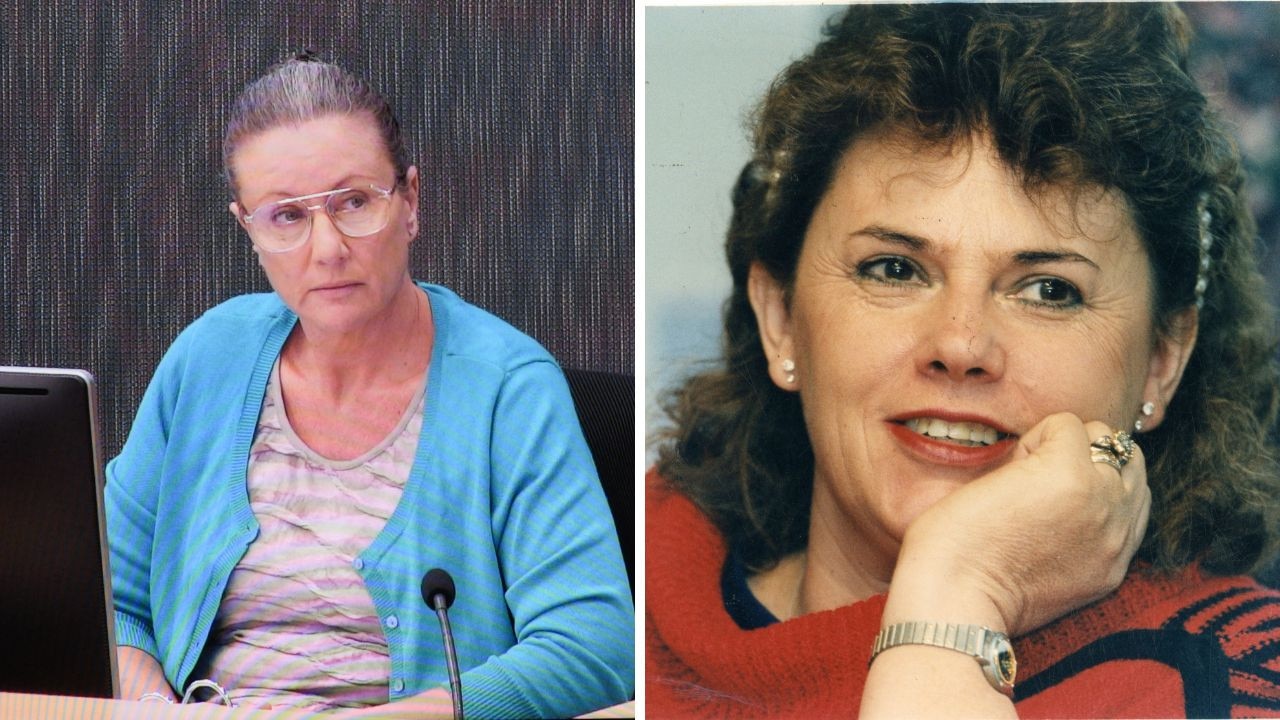Mother’s Guilt podcast: Hand writing expert says Kathleen Folbigg diaries contain no admissions of guilt
Kathleen Folbigg’s ‘chilling’ diary entries were used to convict her of killing her four children, but a leading expert reveals what her diaries actually reveal. Don’t miss the Mother’s Guilt podcast.
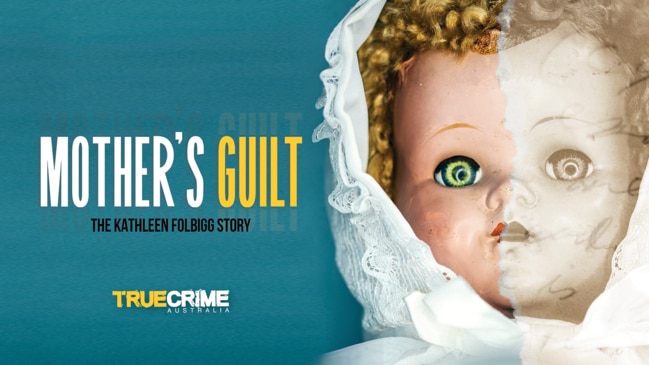
Mother's Guilt
Don't miss out on the headlines from Mother's Guilt. Followed categories will be added to My News.
The diaries of Kathleen Folbigg – which played a crucial role in her 2003 guilty conviction for smothering her four infant children – do not contain any admissions of guilt, according to leading US psychologist and linguistic expert James Pennebaker.
The judge in the 2003 trial of Kathleen Folbigg described the selected diary entries as “chilling”. They cover her thoughts and fears over the decade of 1989 to 1999 when four of her babies died, but Professor Pennebaker said his detailed analysis found no evidence of guilt.
Folbigg has served 19 years of a 25-year sentence.
New genetic evidence suggests at least two of the children inherited a mutation linked to cardiac arrhythmias and sudden death, evidence that will be heard at a new inquiry that begins on Monday.
LISTEN: Episode 5 of our SUBSCRIBER EXCLUSIVE podcast Mother’s Guilt – The Kathleen Folbigg Story, is now live. Press play here.
Click here for the full Mother’s Guilt episode rundown.
Prof Pennebaker, who has worked for the FBI and CIA on criminal cases, developed a computerised text analysis program that can analyse emotional states and reasoning and he ran Folbigg’s diary entries through the program before he read them.
“I use that program to analyse her diaries, and I have hundreds of thousands of other texts that we‘ve collected over the years to come up with some kind of comparison, just to get a sense of what was her psychological state over those years,” Prof Pennebaker said.
“I cannot find any admissions of guilt. I cannot find any evidence of any premeditation. I cannot find any convincing evidence of any kind of mental illness.”
The program can identify changes in language and thought if a writer is concealing guilt he said.
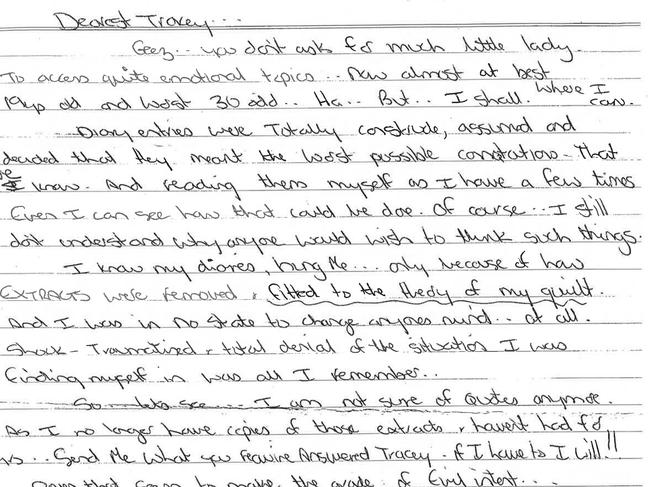
“There are certain kinds of language use that we know occur when a person is concealing something. And they become less personal, more psychologically distant. And, there again, there‘s just no hint of that. And if she were guilty, she would have hidden her tracks in some way, really working to say that she was happy and peppy, and everything’s great. There’s no, there’s just no hints of that,” he said.
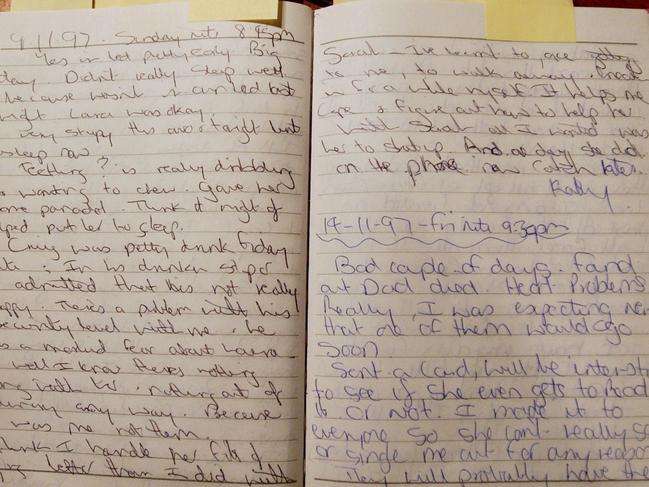
Episode five of the podcast Mother’s Guilt hears from Kathleen Folbigg herself in 2019 when she tried to explain what her more contentious entries actually mean. One entry relates to her trying to get pregnant with her fourth child, having already lost three others. She refers to her biological father, who killed her mother when she was two years old.
“Children thing still isn’t happening. Thinking of forgetting the idea. Nature, fate & the man upstairs have decided I don’t get the 4th chance. And rightly so I suppose. I would like to make all my mistakes & terrible thinking be corrected and mean something though. Plus, I’m ready to continue my family time now. Obviously, I’m my father’s daughter.”
Folbigg’s biological father murdered her mother when she was 18 months old and she experienced sexual abuse as well before she became a ward of the state.
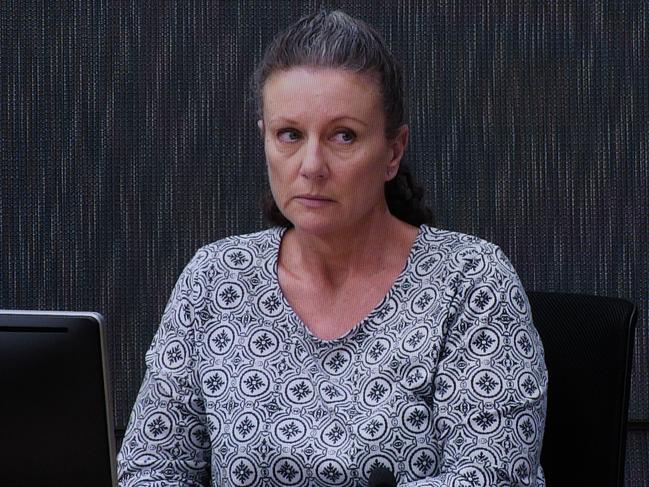
In the cross-examination of Folbigg it was put to her she meant she is like her father because she killed her children but Folbigg explained the entry meant she considered him a loser and she had become one too.
“‘I believed and thought at the time that my father’s actions ruined my life and my life never seemed to go right from there. And it was a thought of, along the lines of sins of the father being on the daughter. Was I paying the price? I believed at the time, writing these diaries in preparation for Laura, everything was very dark and every thought was very dark and I blamed my father a lot for most of my life just going wrong,” she told the inquiry.
Psychiatrist Dr Michael Diamond, who analysed Folbigg in 2019, wrote a report citing self-blame as central to her diaries. In the 2003 trial, no accommodation was made for the complex post-traumatic stress disorder she clearly suffered from an early age.
“I am strongly of the view that Ms Folbigg has … a clear diagnosis of Complex Post Traumatic Stress Disorder …. My view at this point is that it is possible and even likely that Folbigg was writing personal entries to herself, in much the same way as she has made diary entries for a large part of her life so that her private thoughts and feelings were articulated in terms of self-blame, assuming responsibility for the deaths of her children and talking about her feelings and general actions in self-deprecatory ways,” he said.
Dr Diamond’s report echoes that of other experts.
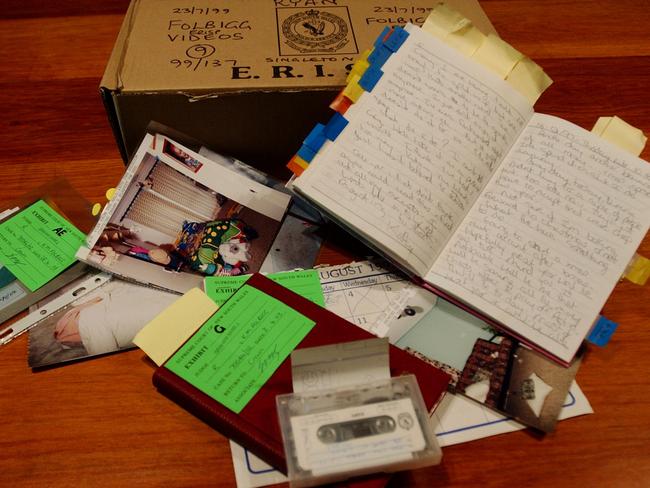
Professor of law, Dr Emma Cunliffe, who also read the dairies in full and wrote the book Murder, Medicine And Motherhood said self-blame was very normal feature of maternal bereavement.
“In those diaries, Folbigg expressed feelings of guilt about the children‘s death, feelings of self-blame. She considered whether the deaths had been her fault. Whether she contributed to them in some way,” Dr Cunliffe said.
“Neither the prosecution nor defence called any evidence about what normal grief looks like, for a mother in the situation of having experienced repeated infant deaths. And one of the things that I found is that, in fact, self-blame is ubiquitous. Mothers blame themselves for things that they couldn‘t possibly have controlled, for things that couldn’t possibly have caused the child’s death.
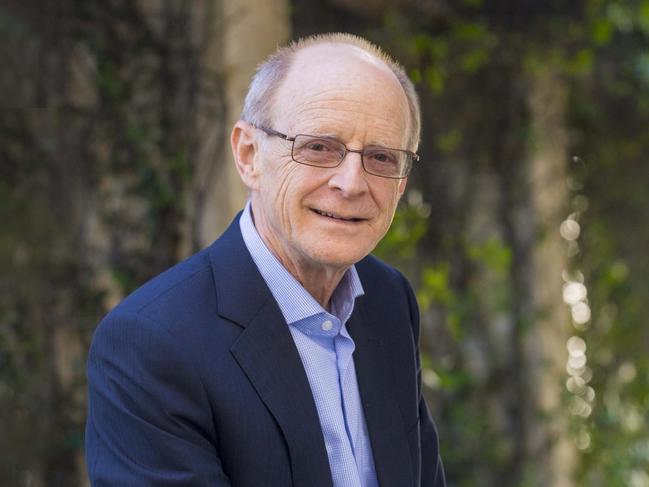
“But the theory is that if you can identify something that you could have done, that you could have controlled that, you could have changed it, then perhaps you can exercise control over a future child’s life, for example. That’s a coping strategy. But then that sort of evidence, that sort of understanding was never put before the jury in the trial.”
The inquiry will hear compelling evidence on Monday and Tuesday from scientists who discovered the genetic mutation inherited by Sarah and Laura Folbigg was likely to cause cardiac arrhythmias. On Wednesday, Professors Carola Vinuesa and Todor Arsov who first identified the mutation will give their evidence. The inquiry has set aside time in February 2023 to hear evidence regarding interpretation of the diaries.
FOR MORE: Click here for the full Mother’s Guilt episode rundown


